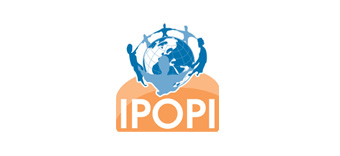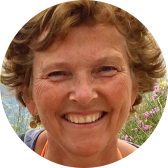July 04, 2018
Interview with Dr Lotte Denning, GP
Dr Lotte Vosmar Denning is a general practitioner (GP) from Denmark and IPOPI’s Medical Advisory Panel GP Adviser, who has dedicated part of her professional life to helping other GPs better understand primary immunodeficiencies (PIDs). She is also the mother of a PID patient and has helped many parents cope with the specific challenges of parenthood with a chronically ill child.
Question: You have recently published a medical paper called ‘PIDs for GPs – making a difference in diagnosing severe illness’. As PIDs are rare conditions why is it so important for GPs to become aware of them?
Answer: PIDs are not that rare. New estimates indicate that there are about 1:1200 patients. This means that all GPs will come across with, at least, 1 or 2 cases in their practice. Furthermore, PIDs are diseases that can be treated and if they are diagnosed in due time, the treatment enables these patients to live a normal or close to normal life. Early treatment is very important to avoid organ damage related to consequences of the PID.
Q: What are the clinical signs GPs need to be more attentive about?
A: As GPs we are educated to look for patterns of different diseases. This is a challenge as only some PIDs have specific characteristics while other PIDs’ symptoms vary over time and from one patient to another due to variability of the expression of the defect genes and to individual and epigenetic factors as well as environmental factors. But there are certain signs that are crucial. First, the family doctor should check if there is a family history of PID and second, if there is a tendency of infections in the medical history of the patient. PID very often runs in families even if the presentations are different. Infections can be bacterial, viral of fungal. They can be due to rare microorganisms and present as opportunistic infections. They can be long standing infections that need longer treatment than usual. Inflammatory and autoimmune disorders can also be a presentation of PID especially when the conventional treatment fails. Allergies and cancer are seen more frequent in the group of PID patients.
The most severe PIDs will be diagnosed in early childhood, but many patients present symptoms when they become adults. This means that GPs must be attentive of all age groups and sometimes look many years to find a pattern.
Q: It is possible to diagnose and treat a PID patient without genetic testing?
A: It is possible to diagnose some PIDs with a simple blood test. Measuring the bone marrow function and the antibody levels as well as the vaccination responses is of great value and will catch a large group of PIDs. But even when test results are normal, the medical history can make you suspect of a PID, and they should be referred to a specialist. Further diagnose and treatment options are taken care of by specialists such as immunologists or infections’ specialists. Further tests often need to be done. The immune response can be tested in the lab and genetic testing is used more and more and might be the golden standard for all patients in a few years.
Q: As you are a GP, what would be your first recommendation for a colleague who has just started taking care of a PID patient?
A: I believe that the medical treatment should be decided and taken care of by the specialist with knowledge and experience within PIDs but there are certainly other things the GP can take care of. Knowledge about PIDs can help with further explanation of the condition and its consequences. He/she can be supportive in psychological aspects, such as, referral to psychologist and be supportive about the situation in the family (siblings, grandparents, wife/husband). He/she can help in facilitating information, with the access to the clinic or at home visits when needed. Supporting other members of the family, like the siblings for example, can be very helpful as a significant chronic illness will have consequences for all members of the family.
Q: Where can GPs find more information and refer their patients for specialised care?
A: IPOPI have made a short leaflet about PIDs for GPs. It is very informative. If specific advice is needed contact IPOPIs GP advisor is possible (please reach out to info@ipopi.org). An article in the Indian Magazine for GP about PID was published in 2018 . Direct contact to a specialist at a hospital in your country is a possibility. On Facebook there is a group: GPsforPIDs, to which you can apply for membership.
In most countries the National PID patient groups will be able to offer support and to indicate a specialist.
Q: You are also a mother of a young PID patient and some of your work focuses on teenagers and management of chronic illnesses. When should the family start handing over the responsibilities of the condition management to their affected child(ren)?
A: I think children should be involved from the very beginning since you have the diagnose. Of course, the information should be adapted to the age and level of understanding of the child, but they will know they are ill, and they realise soon that it has consequences and that they are different from other children in some way. I believe that you must include your child in consultations’ management, tests, medication, etc, from the start and that that enables them to participate whenever they are ready.
The transition starts very early, as you start to hand over responsibility to your child. Stepping aside as caregiver leaves a space for the young ones to take over. As a parent you will be their safety net and for many years, their back up, but as children and young teenagers they can answer for themselves and soon can have consultations by themselves – if you let them. If they are used to talking with the nurses and doctors from a very young age, it will be natural for them to be there on their own.
Managing a chronic disease can be complicated and might not be fully understood and taken upon until the patient is around 25 years old. Until then, support from parents can be useful. But people are different, that includes young people and their parents.


